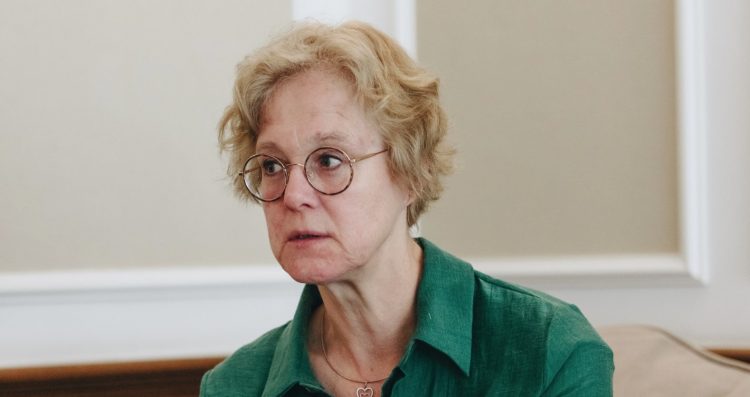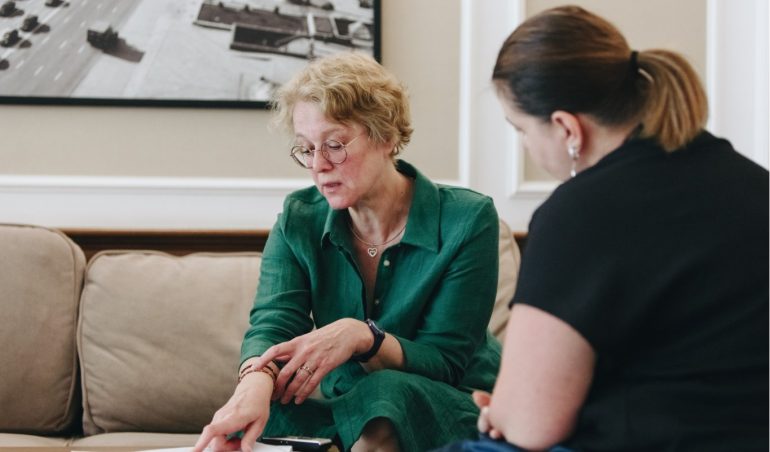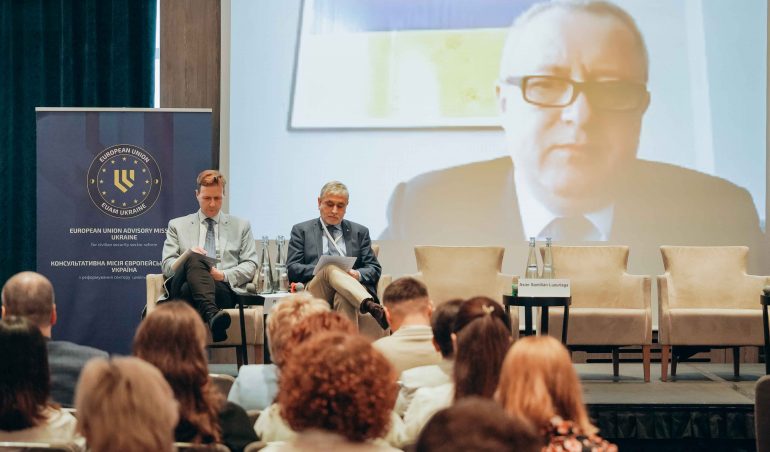Interview with EUAM Senior Adviser on Adjudication of International Crimes, Magda Koole, for the Ukrainian online media outlet Babel.
In the first days of the full-scale invasion, the parliament decided to regulate the issue of collaborationism. In March, MPs added Article 111-1 to the Criminal Code. It prohibits Ukrainians in the territories occupied by Russia from cooperating with the occupation authorities, holding any positions there, running schools, running joint businesses, and much more. Human rights activists say that Ukrainians have found themselves under double pressure — Ukrainian legislation and Russian occupation legislation, which often contradict each other. One of the main complaints about the new article in the Criminal Code is that it goes against international humanitarian law and human rights. Judge Magda Koole from the Netherlands has been working in Ukraine for several years as a senior advisor on the trial of international crimes cases for the European Union Advisory Mission. Simply put, she helps Ukrainian law enforcement officers and judges understand international humanitarian law, as well as investigate international crimes. In an interview with Babel, Magda Koole explained why not all Ukrainians who collaborated with the Russians during the occupation should be called criminals and sentenced in absentia, and what must be proven in court to call a person a collaborator.





